Open on Evenings & Holidays! Extended And Flexible Hours!
* DNA Testing for Immigration
* Paternity Testing
* Deceased Paternity
* Forensic Testing & Much More!
Open on Evenings & Holidays! Extended And Flexible Hours!
* DNA Testing for Immigration
* Paternity Testing
* Deceased Paternity
* Forensic Testing & Much More!
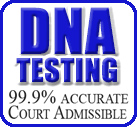
AB DNA Testing Services
Phone: 718-701-0292
We offer New York’s BEST AND MOST AFFORDABLE DNA TESTING with a full range of services to verify family relationships.
We specialize in the following types of DNA tests:
• Paternity • Maternity • Grand-parenting • Sibling Relationship • Biological Relationship Studies • Twin Studies • Deceased Paternity • Forensic Testing • Child Identity Testing • Family Tree and Genealogy Testing
* EVEN LOWER PRICE THAN HOME DNA KITS.
* NO HIDDEN COSTS – Collection kits, photography, and fingerprinting all included.
* 99.9% (OR GREATER) ACCURACY.
* FINAL RESULTS ARE PRESENTED IN A NOTARIZED DOCUMENT IN A CLEAR AND CONCISE FORM.
* ALL RESULTS ARE COURT ADMISSIBLE.
* OVER 15 YEARS EXPERIENCE.
* NO REFERRALS NECESSARY!
* FAST AND PAINLESS SAMPLE COLLECTIONS, USING BUCCAL (Mouth) SWABS.
* SPANISH, PORTUGUESE, FRENCH AND CREOLE SPOKEN.
* PLEASE SEE TRANSLATIONS OF OUR SERVICES IN: SPANISH, BENGALI, URDU, CHINESE AND NEPALESE!
Located In Woodside Queens, easily reachable from all boroughs (Queens, Manhattan, Brooklyn, Bronx and Staten Island), Westchester, Nassau and Suffolk.
We can also schedule DNA tests at our network of collection sites throughout New York city.
Call us. We have found that in many cases, our personalized service can overturn your denial. We will call the passport office or immigration dept. for you and plead your case over phone verbally.
90% of time they will revoke your denial, as long as you get the required information to them quickly.
AB DNA TESTING SERVICES
AB DNA Testing Services © |
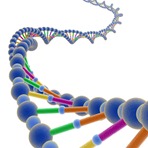 |
718-701-0292 We are open on evenings & holidays! |
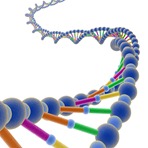 |
Legal Paternity Test: $349
NYS compliant testing only. NO HIDDEN COSTS OR EXTRA FEES.
We do not provide prenatal DNA testing in-house. If you need prenatal testing, we can refer you to a provider we’ve worked with previously:
Prenatal DNA Testing NYC.
AB DNA Testing Services offers a broad range of DNA testing options using certified, accredited laboratories and verified collection procedures.
Do you need a parents & children familial DNA test? A familial DNA test allows law enforcement to find relatives of an individual they are looking to identify. They use a DNA database to match genetic information. When they fail to find the person through a DNA match, they use familial DNA and search for relatives. These relatives can include parents, siblings, children, and anyone with a blood relation. Law enforcement organizations use this familial DNA to find the relative of any suspect almost every day.
For instance, if the investigating team collects DNA samples but cannot find a match in the database, they look for relatives. However, if that person’s father was previously imprisoned, they find their details from the database. Therefore, law enforcement will search for the suspect’s father to approach them.
By connecting through relatives, authorities will have a better chance of finding the suspect. Below you can find the use of familial DNA searches for criminal investigations.
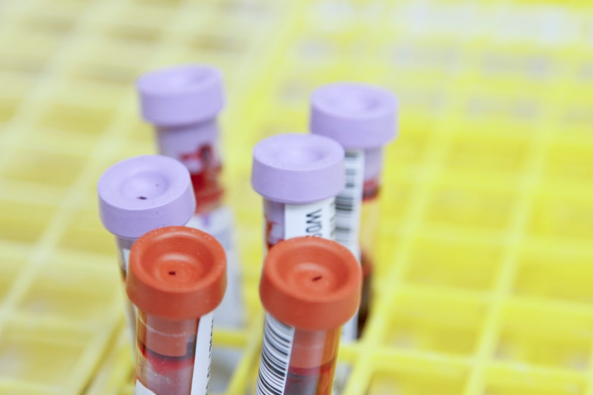
(Source)
With traditional DNA searches, you can only find the exact match for the DNA sample. With traditional DNA testing methods, authorities can find a DNA match of the samples collected from the crime scene.
The matches may differ widely in detail because authorities collect DNA from a lot of convicted criminals. Even the localities and states collect DNA samples of arrested people charged for a crime.
Through the traditional method, they can only find an exact match for the DNA. If the DNA does not precisely match, the search will show no results. However, familial search allows authorities to search extensively by including the relatives from the search database.
The available form of DNA searches limits to men only. That is because it involves the Y chromosomes while analyzing, and only males contain Y chromosomes. With the current version of DNA searches, you cannot find the relatives of a female. Even female relatives do not appear on the DNA sample.
Law enforcement organizations consider familial DNA as a powerful tool for tracking suspects and criminals. However, the civil liberty group criticizes familial DNA and considers it an invasion of privacy. Many argue that this DNA testing method is violating the Fourth Amendment’s protection against unreasonable searches. With this method, the information of the suspect’s relative can fall into the wrong hands.
It is hard to find authorities that perform familial searches using DNA since many organizations are still following traditional methods. Furthermore, only a few states allow law enforcement to find the suspects’ relatives using familial DNA search. The policies are either written or not written in the manuals of the internal laboratory. If they fail to find a match for DNA samples from a crime scene, the authorities will look for relatives.
When children’s DNA forms, they inherit one genetic marker from their father and one from their mother. They inherit these markers in all the locations of a chromosome. While going through a DNA test in a forensic laboratory, scientists assign a number to each type of marker. Relatives have a lot of markers similar to each other.
For a serious crime with exhausted leads, the authorities look for the criminal’s relatives. They do so after running a search on DNA profiles with similar markers and create a list of potential relatives. At the same time, they are considering the samples of the crime scene. They search for Y-chromosomes shared by brothers, sons, and fathers. After the scientist identifies possible relatives, investigators will search for records and find family members in the age group’s DNA samples.
The investigator will then provide the suspect’s name and collect the DNA sample from them to find if their DNA sample matches the genetic evidence collected from the crime scene.

(Source)
DNA testing is helpful for familial DNA testing, but there are various methods in which DNA can help find a person or their parent. Furthermore, DNA can tell a lot about you, such as your health conditions, physical appearance, etc. Therefore, this method can be helpful in more ways than one.
Suppose you are looking for an organization for different DNA testing types—tests like immigration DNA testing, paternity and maternity DNA testing, Criminal investigation, etc. You can contact AB DNA Testing. Our staff and technicians are experts and will provide you the best assistance throughout the process of DNA Testing. For further information, you can contact us at 718-701-0292.
If you’re asking yourself “Is he the father?”, Then you should take a DNA test. Every day, people find their long lost family members or figure out that they were not living with their biological father. After knowing about their stories, you may be wondering how you can find your biological father if you never knew them.
No matter what test you go for, you will end up finding some of your relatives. You need to take various tests so that you can get closer and closer to finding your father. You can also upload your DNA data to a database, which helps people find their relatives. The database will allow various people to find you, and you to find them.
In this article, you will learn how you can find your ancestry or your father with a DNA test. Even if your parents are not available in your database, you can still find them.
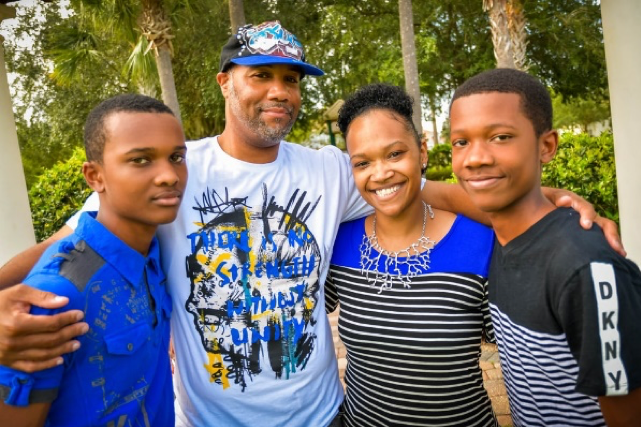
(Source)
The first and the most obvious thing to do is take a DNA test to find your biological family. You can visit any AABB accredited laboratory, such as AB DNA Test. Even if your father did not take the test yet, but their close relatives may have. You can find those relatives and connect with your biological father.
When you find the results of your test, you can publish that on the database. If you already know your family tree, you can share that information with a family tree database. Through this database, your other biological relatives can find you while looking for their ancestors.
Finding your DNA match is not as difficult a task as it seems. When you are done with your DNA test, you need to upload that information to the database. That database will analyze the matches and will show you all the biological relatives you have. The more your DNA matches with the other person, the more closely they relate to you. If you cannot find any close relationship, you should wait to test and search for themselves. This way, they will find you as their biological relative and look for you.
Once you receive all the DNA matches, you need to start with the close ones and check their family trees. If your relative has uploaded their family tree on the database, you can view every member and relate it with them. If they have no family tree, then you can contact them and ask yourself.
Once you find out your DNA matches, you will receive their Names, surnames, and any other details they have mentioned. If you can find their contact number, you can call them and set up a meeting. Some people hesitate to meet their biological relatives as they have never seen them. That is normal, but you should consider how happy and satisfied you will feel once you find your biological parents. Furthermore, DNA testing to find a father is very common now. So if you will meet your biological relatives, you will feel happy rather than awkward.
After you contact your biological relatives, you can set up a meeting to get to know them. You can also ask for further details about your parents, ancestors, and family tree. Sometimes, your relatives are far from your location or maybe in another country. If you are unable to visit them, you can discuss with them about your father on call. While they might not mind if you ask them about their details, some might be a little more hesitant. So be a little careful when asking any questions.
Once you find out your possible ancestors, you need to investigate deeply and find more information about your relationship. Now you can predict your future by asking for their family tree. For instance, the ancestor of your 2nd cousin would be your great grandparents. Now you can add the spot in your great grandparents in your family tree. After knowing the exact position in your family tree, you can adjust them.
After knowing the ancestor, you can find their descendants by generation, identify their children, and so on till the present. Now keep going until you know the name of your father. Sometimes vague information from your adoption files can also help. You have to connect the pieces of the puzzle that is your family tree one at a time.
When you are tracing your family members, you can find potential relatives such as your father, mother, cousins, uncles, aunts, grandparents. Even if you are not sure about their relationship with you, you can talk to them and find out. This way, you can find the missing gaps in your family tree. You should not hesitate to talk to them, since they too want to find their relatives.

(Source)
To prove your father, you need to take a DNA test.
Contact the top DNA testing lab in NYC.
AB DNA Testing
63-11 Queens Boulevard
Woodside NY 11377
718-701-0292